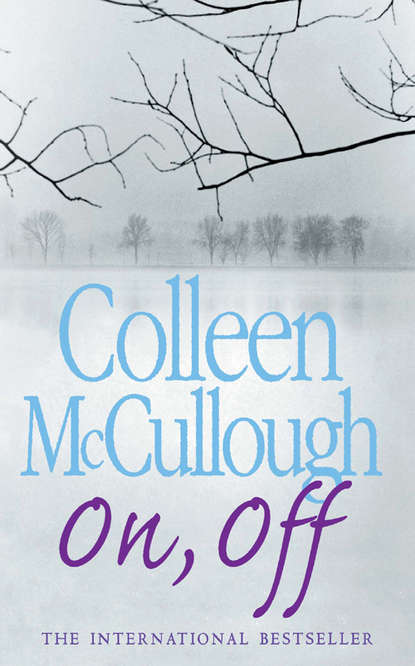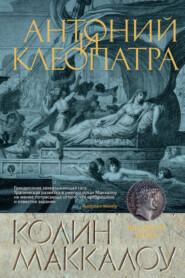По всем вопросам обращайтесь на: info@litportal.ru
(©) 2003-2024.
✖
On, Off
Автор
Год написания книги
2018
Настройки чтения
Размер шрифта
Высота строк
Поля
“Just around the corner. I’m going up to the cabin this weekend to get it ready—and that means I need my jacket—and I can’t find it because it isn’t where it ought to be.”
“Nor are you.” She put Mikey in his high chair and Esther on a chair with a fat cushion, then hollered for Stanley and Bella. “Dinner’s ready!”
A boy and a girl galloped into the room, whooping that they were starving. Mom was a great cook who never made them eat things they didn’t like—no spinach, no carrots, no cabbage unless she’d made it into coleslaw.
Walter sat at one end of the long table, Paola at its other end where she could spoon slop into Mikey’s mouth, open like a bird’s, and correct Esther’s table manners, still far from perfect. “The other thing I can’t stand,” she said as soon as everyone was eating, “is your selfishness. It would be great to have somewhere to take the kids on a weekend, but no! It’s your cabin, and we can whistle—Stanley, that is not permission to whistle!”
“You’re right when you say the cabin is mine,” he said coldly, cutting his very good lasagna with a fork. “My grandfather left me the cabin, Paola—to me, and me alone. It’s the one place where I can get away from all this mayhem!”
“Your wife and four children, you mean.”
“Yes, I do.”
“If you didn’t want four children, Walt, why didn’t you tie a knot in the goddam thing? It takes two to tango.”
“Tango? What’s that?” asked Stanley.
“A sexy dance,” said his mother curtly.
An answer that for some reason inexplicable to Stanley caused Dad to roar with laughter.
“Shut up!” Paola growled. “Shut up, Walt!”
He wiped his eyes, put another piece of lasagna on Stanley’s empty plate and then replenished his own plate. “I am going up to the cabin on Friday night, Paola, and I won’t be home until dawn on Monday. I have a mountain of reading to do, and as God is my witness, I cannot read in this house!”
“If you’d only give up this stupid research and go into a good private practice, Walt, we could live in a house big enough for twelve kids without destroying your peace!” Her big brown eyes sparkled with angry tears. “You’ve gotten this fantastic reputation for dealing with all those weird and wonderful diseases that have people’s names—Wilson, Huntington, don’t ask me to remember all of them!—and I know you get offers to go into private practice in much better places than Holloman—Atlanta, Miami, Houston—warm places. Places where house help is cheap. The children could have music lessons, I could go back to college—”
His hand came down on the table violently; the children went still, shivered. “Just how do you know I’ve had offers, Paola?” he asked dangerously.
Her face paled, but she defied him. “You leave the letters lying around, I find them everywhere.”
“And read them. Yet you wonder why I have to get away? My mail is private, do you hear me? Private!”
Walt threw his fork down, shoved his chair away from the table and stalked from the kitchen. His wife and children stared after him, then Paola wiped Mikey’s slimed face and rose to get the ice cream and Jell-o.
There was an old mirror on the wall to one side of the fridge; Paola caught a glimpse of herself in it and felt the tears overflow. Eight years had been enough to turn the vivacious and very pretty young woman with the great body into a thin, downright plain woman who looked years older than she was.
Oh, the joy of meeting Walt, of captivating Walt, of catching Walt! A fully qualified medical doctor who was so brilliant that they would soon be rich. What she hadn’t counted on was that Walt had no intention of leaving academic medicine—plumbers earned more! And the children just kept coming, coming. The only way she could prevent a fifth child was to sin—Paola was taking The Pill.
The quarrels, she understood, were totally destructive. They upset the children, they upset her, and they were driving Walt to seek his cabin more and more often. His cabin—she’d never even seen it! Nor would she. Walt refused to tell her where it was.
“Oh, wow, fudge ripple!” cried Stanley.
“Fudge ripple doesn’t go with grape Jell-o,” said Bella, who was the fussy one.
According to her own lights Paola was a good mother. “Would you prefer your Jell-o and your ice cream in separate bowls, honey?”
Dr. Hideki Satsuma, letting himself into his penthouse apartment atop Holloman’s tallest building, and feeling the day’s stresses slide from his shoulders.
Eido had come home earlier than he, set everything out as his master liked, then gone ten floors down to the far less elegant apartment where he lived with his wife.
The décor was deceptively simple: walls of beaten copper sheeting; checkered doors of black wood and frail paper; one very old three-leafed screen of expressionless slit-eyed women with pompadour hair styles and ribby parasols; a plain polished black stone pedestal that held one perfect flower in a twisted Steuben vase; glossy black wooden floors.
A cold sushi supper was laid out on the black lacquer table sunk into a well, and when he went through to his bedroom he found his kimono spread out, his Jacuzzi giving off lazy tendrils of steam, his futon down.
Bathed, fed, relaxed, he went then to the glass wall that framed his courtyard and stood absorbing its perfection. To have it built had put him to a great deal of expense, but money wasn’t a commodity Hideki needed to worry about. So beautiful, living as it did inside the apartment where once had been an open area of roof garden. On the courtyard side its walls were transparent. Its contents were sparse to the point of austerity. A few bonsaied conifers, a tall Hollywood cypress growing in a double helix, an incredibly old bonsaied Japanese maple, perhaps two dozen rocks of assorted sizes and shapes, and varicolored marble pebbles laid down in a complex pattern not meant to be walked upon. Here the forces of his private universe came together in the way most felicitous to his own well-being.
But tonight, his fingertips still reeking faintly of xylene to his exquisitely sensitive nose, Hideki Satsuma stared at his courtyard in the sure knowledge that his private universe had shifted on its foundations; that he had to rearrange the pots, the rocks, the pebbles, to neutralize this profoundly disturbing development. A development beyond his control, he who was driven to control everything. There…There, where that pink rivulet meandered through the glowing jade pebbles…And there, where the sharp grey rock leaped like a sword blade in front of the tender vulvar roundness of the cloven red rock…And there, where the double helix of the Hollywood cypress tapered up to the sky…They were suddenly wrong, he would have to start again.
His mind went wistfully to his beach house up on the elbow of Cape Cod, but what had happened there recently required a period of recovery. Besides, the drive was too long, even in his maroon Ferrari through the night marches. No, that house had a different purpose, and while it was connected to the shifting of his universe, the epicenter of the disturbance lay in his Holloman courtyard.
Could it wait until the weekend? No, it could not. Hideki Satsuma pressed the buzzer that would summon Eido upstairs.
Desdemona, erupting into her apartment on the third floor of a three-family house on Sycamore Street just beyond the Hollow. Her first stop was the bathroom, where she ran a warm bath and removed the lingering traces of her two-mile walk home. Then it was into the kitchen to open a can of Irish stew and another of creamed rice pudding; Desdemona was no cook. The eyes that Carmine had been surprised to find beautiful took no notice of the pitted linoleum or the wallpaper lifting around the edges; Desdemona did not live for creature comforts.
Finally, clad in a checkered flannel man’s dressing gown, she went to the living room, where her cherished work lay in a big wicker basket atop a tall cane stand beside her favorite chair, whose herniating springs she didn’t notice. Frowning, she dug in the basket to find the long piece of silk on which she was embroidering a sideboard panel for Charles Ponsonby—surely it had been right on top? Yes, it had, she was positive of the fact! No chaos for Desdemona Dupre; everything had its place, and lived in it. But the embroidery wasn’t there. Instead, she found a small clump of tightly curling, short black hairs, picked them out and studied them. At which moment she saw the panel, its rich blood reds muddled on the floor behind the chair.
Down went the hairs; she scooped up the embroidery and spread it out to see if it had sustained an injury, but, though a little creased, it was fine. How odd!
Then, the answer occurring to her, her lips tightened. That Nosey Parker of a landlord of hers who lived in the apartment below had been snooping. Only what could one do about it? His wife was so nice; so too was he in his way. And where else would she get a fully furnished apartment for seventy a month in a safe neighborhood? The hairs went in to her trash bin in the kitchen, and she settled, feet under her, in the big old chair to continue with what she privately considered the best piece of embroidery she’d ever done. A complicated, curving pattern of several reds from pinkish to blackish on a background of pale pink silk.
But bugger her landlord! He deserved a booby trap.
Tamara, tired of the painting, her imagination incapable for once of envisioning a face ugly enough, terrifying enough. It would come, but not tonight. Not so soon after today’s disaster. That insolent cop Delmonico, his bullish walk, the shoulders so broad that he looked much shorter than he was, the neck so huge that on anyone else the head would have been dwarfed—but not his head. Massive. Yet try though she would, eyes shut, teeth clenched, she couldn’t make his face assume a piggish cast. And after he made her miss her appointment, she wanted badly to paint him as the ugliest pig in creation.
She couldn’t sleep, and what else was there to do? Read one of her whodunits for the millionth time? She flopped into a big magenta leather chair and reached for the phone.
“Darling?” she asked when a drowsy voice answered.
“I’ve told you, never call me here!”
Click. The line went back to its dial tone.
Cecil, lying in bed with his cheek on Albertia’s beautiful breast, trying to forget Jimmy’s terror.
Otis, listening to the rhythmic beep-beep-beep of his own heart, the tears rolling down his seamed face. No more lead bricks to move, no more cylinders of gas to wriggle onto a dolly, no more cages to shove into the elevator. How much would his pension be?
Wesley, too happy and excited to sleep. How Mohammed had straightened up at his news! Suddenly the hick postulant from Louisiana loomed important; he, Wesley le Clerc, had been given the job of keeping Mohammed el Nesr informed about the murder of a black woman at the Hug. He was on his way.
Nur Chandra, exiled to his cottage in the grounds where only he and his whipping-boy, Misrarthur, ever came. He sat, legs crossed and braided, hands on his knees with palms upraised, each finger precisely positioned. Not asleep, but not awake either. A different place, a different plane. There were monsters to be banished, terrible monsters.
Maurice and Catherine Finch, sitting in the kitchen poring over the accounts.
“Mushrooms, schmushrooms!” said Catherine. “They’ll cost you more than you can make, Maurie, and my chickens won’t eat them.”
“But it’s something different to do, sweetheart! You said yourself that digging out the tunnel was good exercise, and now it’s dug, what have I got to lose by trying? Exotic varieties for a few exclusive shops in New York City.”
“It’ll cost a lot of money,” she said stubbornly.














